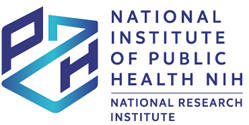Preparedness, response, and preventive behaviors for a pandemic disaster caused by COVID-19 among primary school students in Krabi province, Thailand
1
Excellence Center for DACH, Department of Community Public Health, School of Public Health, Walailak University, Nakhon Si Thammarat, Thailand
Publication date: 2024-04-18
Rocz Panstw Zakl Hig 2024;75(1):93-99
KEYWORDS
ABSTRACT
Background: The global impact of the Coronavirus Disease 2019 (COVID-19) pandemic has been enormous. The primary school’s role and responsibilities include providing students with education and training, cooperating and supporting educational management, and monitoring, following up, and evaluating the school’s operations. Objective: The goals of this study were to evaluate the conditions of preparation for the COVID-19 epidemic’s prevention and response, as well as to investigate the relationship between predisposing, enabling, and reinforcing factors in preventing the spread of COVID-19 among primary school students in the educational area. Material and Methods: A cross-sectional analytical study was used as the research design. The informants are kids in grades 4-6 at Anuban Krabi School in Krabi province. Data is gathered in a computational quantitative manner. Purposive sampling was used to choose the informants. The researchers employed a questionnaire with a content validity index (CVI) of 0.89 and a reliability coefficient (Cronbach’s Alpha Coefficient) of 0.89. For quantitative data analysis, the Pearson Correlation Coefficient was used. Results: In preparation for the COVID-19 outbreak, there is a high degree of knowledge, behaviors, and self-conduct (x=2.78, 2.55, 2.66, and 2.78). The perception and awareness of the COVID-19 epidemic were statistically significant at P < 0.01 in terms of the relationship between perception, awareness, behavior, and self-conducting in stopping the spread of COVID-19. Conclusion: At P < 0.01, regarding the relationship between COVID-19 epidemic perceptions, behaviors, and self-conducting. The correlation between awareness, behaviors, and self-conducting in relation to the COVID-19 outbreak was statistically significant at P<0.01. Conclusions: To prepare and response for COVID-19 enhance and concern perceived policy and COVID-19 information, participation with stakeholders or communities emphasize COVID-19 prevention and all of organization and family.
Share
RELATED ARTICLE
We process personal data collected when visiting the website. The function of obtaining information about users and their behavior is carried out by voluntarily entered information in forms and saving cookies in end devices. Data, including cookies, are used to provide services, improve the user experience and to analyze the traffic in accordance with the Privacy policy. Data are also collected and processed by Google Analytics tool (more).
You can change cookies settings in your browser. Restricted use of cookies in the browser configuration may affect some functionalities of the website.
You can change cookies settings in your browser. Restricted use of cookies in the browser configuration may affect some functionalities of the website.



